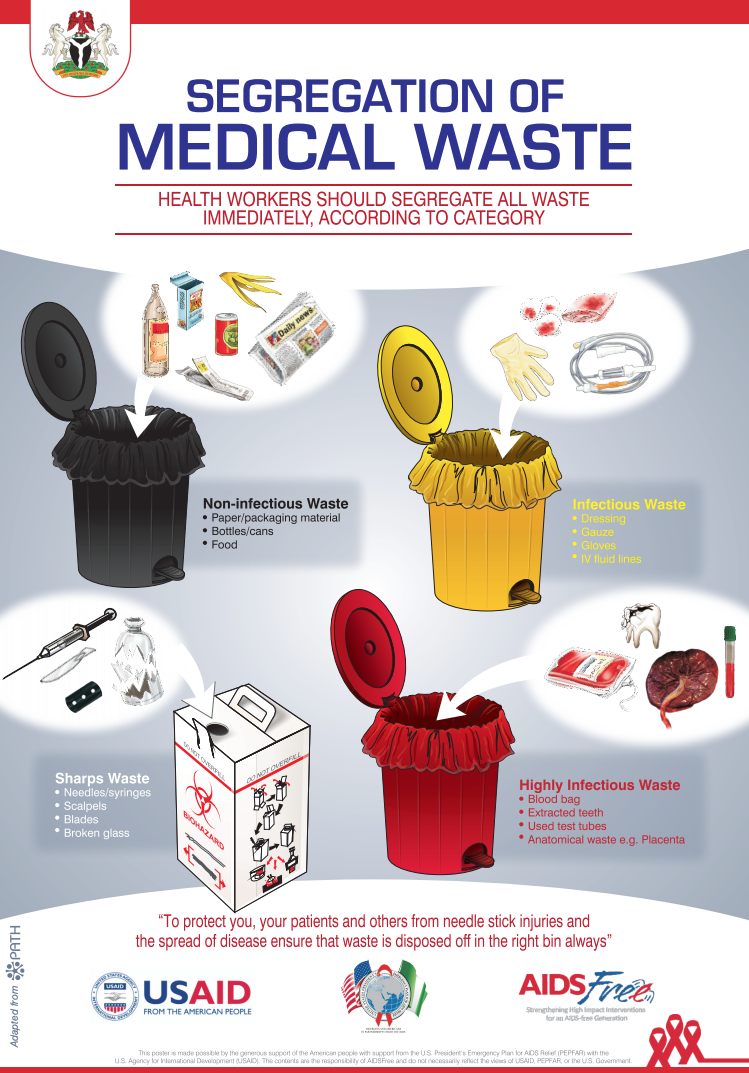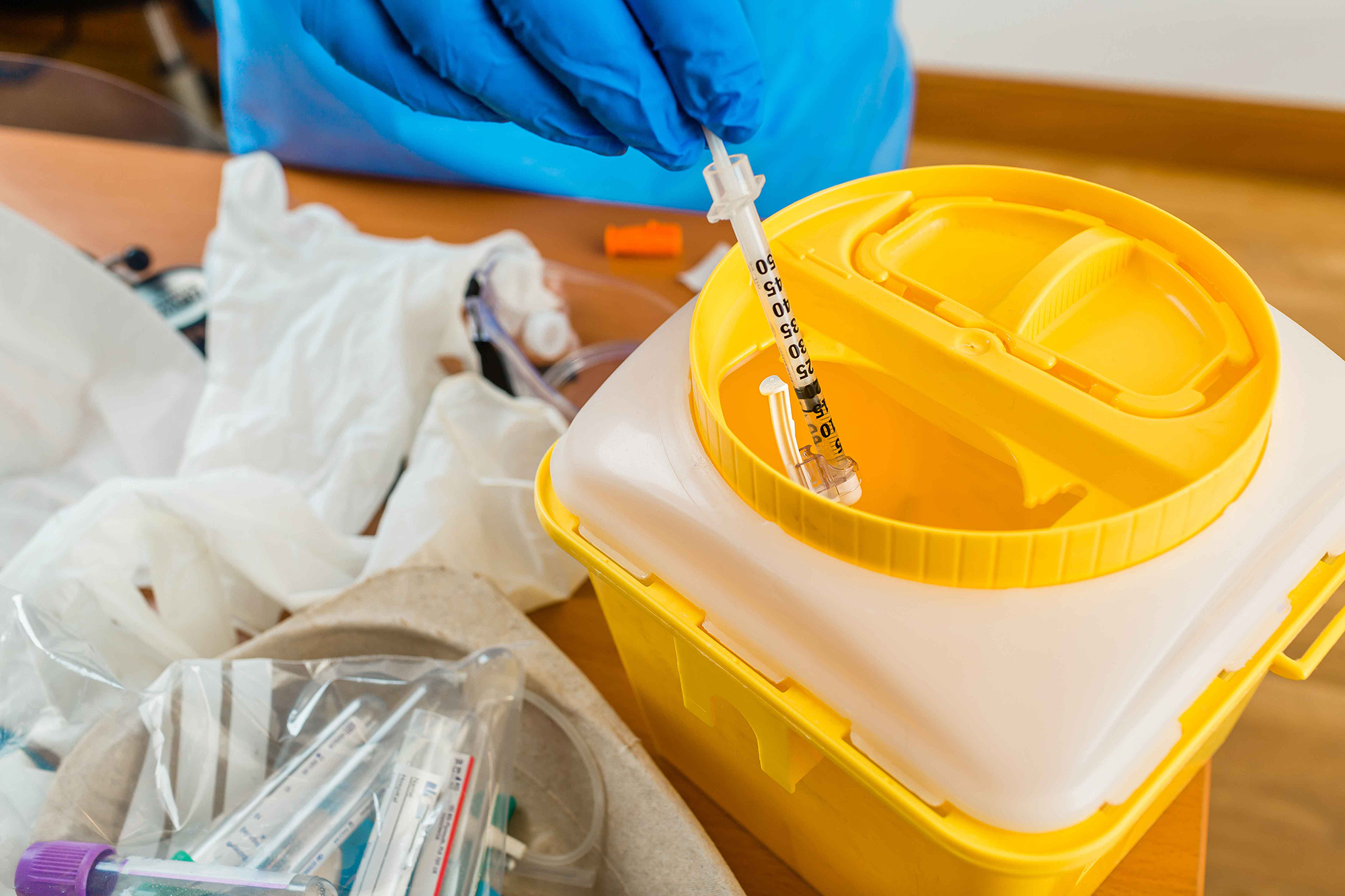Safe and Efficient Medical Waste Removal: Your Trusted Environmental Companion
Wiki Article
Correct Disposal Methods for Clinical Waste
Proper disposal techniques for medical waste are of utmost significance in making certain the safety of both health care employees and the public. The ideal handling and disposal of medical waste is essential to protect against the spread of contagious conditions and the contamination of the environment. This includes the safe disposal of sharps, transmittable waste, and pharmaceutical waste. Sticking to rigorous guidelines established by governing bodies is vital to keep compliance with lawful guidelines and shield public health and wellness. This intro will certainly discover the significance of correct clinical waste disposal, provide guidelines for dealing with different kinds of waste, and emphasize the requirement for healthcare facilities to take on finest techniques. By following these standards, doctor can add to a more secure and healthier environment for all.Value of Appropriate Medical Waste Disposal
Appropriate clinical waste disposal is of utmost significance in order to stop the spread of infections and protect public wellness. Clinical waste refers to any type of waste created throughout medical treatments or from the medical care market.One of the primary factors for appropriate clinical waste disposal is to protect against the spread of infections. By safely disposing of medical waste, the opportunities of direct exposure to these microorganisms are dramatically minimized, making certain the safety of medical care workers, individuals, and the neighborhood at large.
Additionally, appropriate medical waste disposal is essential for safeguarding public health. By complying with appropriate disposal methods, such as partition, containment, and therapy, we can lessen the potential dangers associated with clinical waste and protect the well-being of the community.
Handling and Disposing of Sharps
When it pertains to the handling and disposal of sharps, adherence to appropriate procedures is necessary for ensuring the security of health care workers and preventing the danger of injury or infection. Sharps consist of needles, syringes, lancets, and other products with the potential to puncture or reduce the skin. As a result of their possible to send bloodborne pathogens, such as HIV and liver disease B and C, it is vital to dispose and handle of sharps properly.
Disposal of sharps containers should follow local laws and guidelines (WasteX Medical Waste Disposal). It is vital to never recap needles or bend, break, or get rid of needles from syringes. When the container is complete, it must be safely secured and thrown away according to regional guidelines. It is best to make use of certified medical waste disposal solutions that specialize in the correct handling and disposal of sharps to ensure compliance with guidelines and lessen dangers to healthcare employees and the atmosphere.
Guidelines for Contagious Waste Disposal
Transmittable waste, additionally recognized as biohazardous or biomedical waste, refers to materials that are potentially polluted with transmittable representatives or various other dangerous materials. Appropriate disposal of infectious waste is critical to ensure the security and well-being of medical care workers, individuals, and the general public.The standards for infectious waste disposal differ depending on the country and regional policies, but there are some usual practices that medical care facilities need to comply with. Firstly, all contagious waste should be segregated from other sorts of waste at the point of generation. This assists stop cross-contamination and makes sure that the waste can be taken care of appropriately. Second of all, contagious waste ought to be saved in watertight, puncture-resistant containers that are plainly classified with the biohazard sign. These containers must be kept closed when not being used to decrease the danger of exposure. Contagious waste should be transferred and disposed of by accredited waste management business that specialize in dealing with biomedical waste.
It is very important for healthcare facilities to have thorough training programs in place to inform personnel on the appropriate procedures for infectious garbage disposal. This consists of training on waste segregation, storage, and managing strategies. By adhering to these standards, medical care centers can efficiently handle contagious waste, minimize the threat of infections, and protect public health.
Finest Practices for Pharmaceutical Waste Disposal
Drug garbage disposal need to constantly be performed routinely and in accordance with specialist guidelines. Proper management of pharmaceutical waste is important to safeguard public health and wellness and the atmosphere. Drugs can present a substantial danger if not thrown away properly, as they may pollute water sources, harm marine life, or perhaps contribute to the growth of antibiotic resistance.One of the best practices for pharmaceutical garbage disposal is to develop an assigned collection system within healthcare facilities. medical waste disposal. This system should include different containers for different sorts of pharmaceutical waste, such as expired medications, extra medicines, and infected products. These containers must be plainly classified and located in easily obtainable locations to urge correct disposal by health care experts
Moreover, it is critical to inform healthcare team concerning the proper handling and disposal of pharmaceutical waste. Educating programs need to concentrate on identifying various types of pharmaceutical waste, understanding the associated threats, and complying with the appropriate disposal treatments. Regular tips and updates ought to be given to ensure conformity with disposal guidelines.
Along with interior methods, health care centers ought to additionally establish collaborations with certified waste management business. These firms focus on the collection, transport, and disposal of pharmaceutical waste. By working with these experts, healthcare centers can ensure that their pharmaceutical waste is dealt with securely and in conformity with local laws.
Compliance With Legal Laws
In order to make certain conformity with legal laws, it is necessary for healthcare centers to adhere to proper disposal techniques for clinical waste. Clinical waste positions WasteX Medical Waste Disposal a significant danger to public wellness and the atmosphere, making it important for healthcare facilities to get rid of and handle of it in conformity with the regulation.
Regulatory bodies, such as the Occupational Security and Wellness Management (OSHA) and the Epa (EPA), have developed standards and requirements for the correct disposal of medical waste - WasteX Medical Waste Disposal. These regulations aim to secure medical care employees, waste management personnel, and the general public from potential hazards connected with clinical waste

Non-compliance with lawful guidelines can cause extreme repercussions for medical care facilities, consisting of penalties, legal responsibilities, damage to track record, and possible damage to public health. For that reason, it is crucial for healthcare centers to remain current with the current laws and continuously display and enhance their waste management techniques.
Final Thought
Sticking to guidelines for handling and disposing of sharps, infectious waste, and pharmaceutical waste is vital. It is imperative that healthcare facilities keep rigorous protocols for the proper disposal of medical waste to lessen threats and maintain a safe health care atmosphere.Clinical waste refers to any kind of waste created throughout medical treatments or from the medical care sector. Transmittable waste, additionally understood as biohazardous or biomedical waste, refers to materials that are potentially contaminated with infectious agents or other dangerous compounds. All contagious waste must be segregated from other types of waste at the factor of generation. Infectious waste should be carried and disposed of by accredited waste monitoring firms that specialize in taking care of biomedical waste.
Sticking to guidelines for getting rid of and taking care of of sharps, transmittable waste, and pharmaceutical waste is crucial. (medical waste removal service)
Report this wiki page